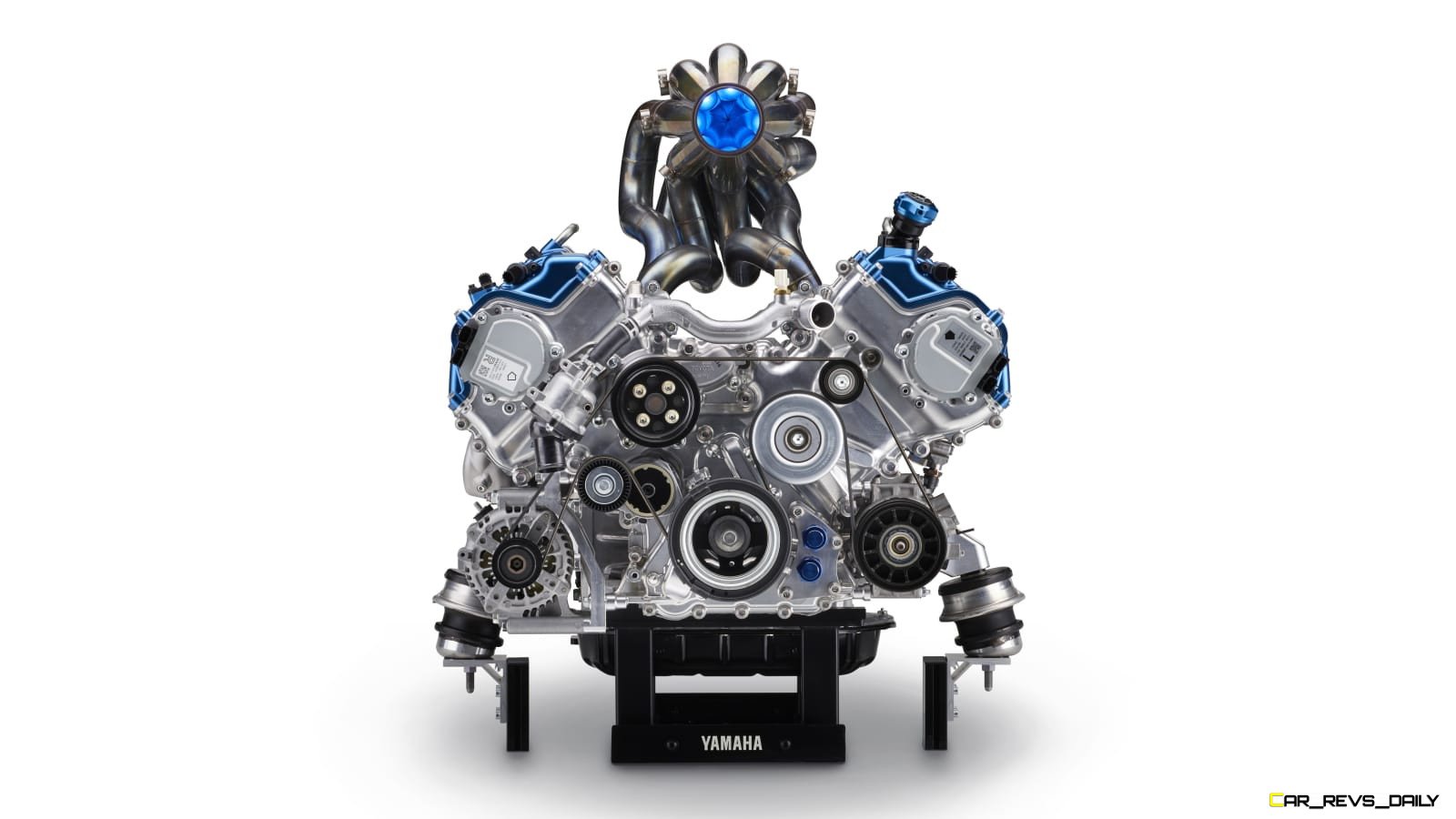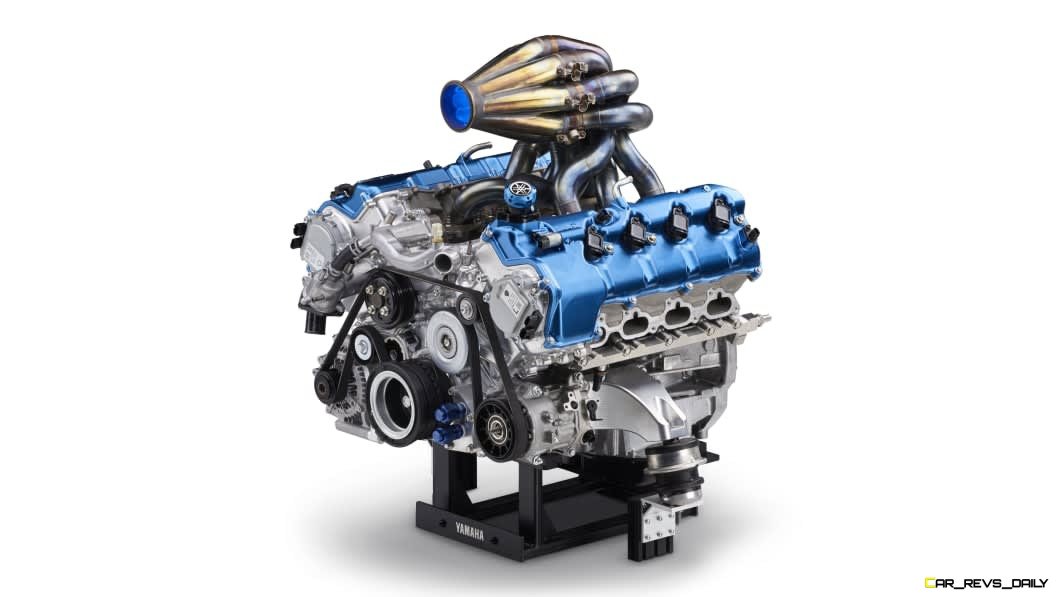When it comes to partnerships, few in the business can match the track record that Japanese auto giant Toyota has in this category. While the company is currently in limited partnerships with BMW and Subaru for certain models, it can be easy to forget that Toyota and Yamaha have also had a history of working together on projects. The two have partnered up again, but this time it’s for a hydrogen-fueled cause with the duo making an all-new hydrogen-powered V8.
Hydrogen-Powered Performance

Unlike the LFA’s V10 engine which was the last time the two teamed up on engine development, this particular engine goes in a weirder direction and is the first V8 powerplant to be powered by Hydrogen. It’s based on the same 5.0 liter V8 that’s used in the Lexus IS but you would never suspect it when you look at some of the odd details that define this engine.
Yamaha and Toyota are keeping some of the secrets of this engine mostly to themselves, but it’s known that it’s capable of producing 455 hp and 398 lb-ft of torque. That’s not too far off what you would see in a pure ICE equipped IS 500 and it allows the engine to assert itself when it is tasked with spirited driving. Yamaha also revealed that it had made several modifications to the engine to make it work with the hydrogen fuel including new injectors, cylinder heads, and others though reps stopped short of telling us what’s exactly up with the laser cannon looking attachment that’s mounted right on top of the engine.
Part Of A Broader Plan
This engine is also part of a bigger green initiative with Toyota confirming that in addition to Yamaha, the Japanese auto company will also work with Kawasaki, Subaru, and Mazda in an attempt to jumpstart research into technologies that could greatly expand the possible fuel options for combustion engines as the group of firms attempts to achieve full carbon neutrality.
While hydrogen itself has faced some setbacks recently, the appearance of this V8 could suggest that the alternative fuel could be used in wider applications which in turn will enhance the desirability of hydrogen-powered vehicles among customers. That enhanced desirability could also spur the construction of more hydrogen charging stations which would allow these vehicles to expand beyond California and into other key urban centers in the country especially if some of this research could help create other hydrogen-powered combustion engines.

Carl Malek has been an automotive journalist for over 10 years. First starting out as a freelance photographer before making the transition to writing during college, his work has appeared on numerous automotive forums as well as websites such as Autoshopper.com.
Carl is also a big fan of British vehicles with the bulk of his devotion going to the Morgan Motor Company as well as offerings from Lotus, MG, and Caterham. When he is not writing about automobiles, Carl enjoys spending time with his family and friends in the Metro Detroit area, as well as spending time with his adorable pets.

